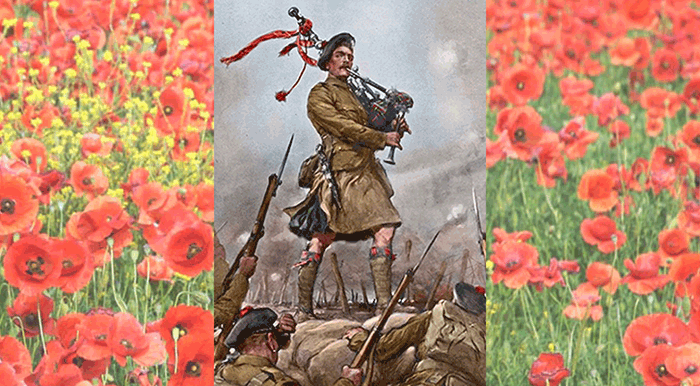
John Nevans is the current piping instructor at Lathallan School’s pipe band, having held the post for fifteen years. In this article he reveals the war herosim of the band’s founder, Mr Harry Stott….
Lathallan School sits at the base of a sloping coastline surrounded by natural woodlands, yards away from the rocky shoreline of the North Sea. Close to the fishing village of Johnshaven, the school occupies the building known as Brotherton Castle and has done so since 1949.
In 2024 the band will reach the 60th anniversary of its formation in 1964 under piping instructor Mr Harry Stott of Johnshaven and drumming instructor Mr Jock Clarke of Brechin.
By John Nevans
Though Mr Stott is named in the school yearbooks, little was known about him until one of those moments occurs when a link from the past opens up through a person in the present.
Our Information Technologist Mr Myles Beattie is Harry Stott’s great nephew. Myles and his mother, Mrs Joanne Beattie, supplied a very interesting history of Harry Stott and some of the previously unknown, but remarkable, events of his life.
[wds id=”2″]
Harry was born on 18th July 1893 at Townhead Road, Fettercairn, Aberdeenshire, to Jane and David Stott. Harry worked as a gamekeeper to a Miss Scott of Brotherton Castle.
He moved to a gamekeeper’s job in the Borders but had not been long at it when war broke out and, aged 19, he enlisted in the 6th Battalion of the Kings Own Scottish Borderers. There he learned to play the pipes and joined the regimental band.
During the First World War pipers frequently ‘went over the top’ first to encourage the soldiers out of the trenches. In the KOSB it was normal to play the regimental tune All the Blue Bonnets are over the Border interspersed by Highland Laddie.
The KOSB were fighting at the Battle of Loos which took place in France from 25th September to 8th October 1915. It was the biggest British attack of 1915, the first time that the British used poison gas, and the first mass engagement of New Army units. 21,000 men were killed in the battle and 7,000 of them were Scots.
On the first day KOSB Pipe Major Robert MacKenzie went over the top and started to play the regimental tune. He was struck by enemy fire and fell, shot in both legs. He was aged 59.
Though gassed by the British gas which blew back from the German lines, he managed to crawl back to his trenches and was taken to hospital at Dannes Camieres.
Harry Stott, acting as a stretcher bearer, took the pipes from P/M MacKenzie and, without fearing the consequences, leapt from the trench and struck up Highland Laddie. He fully expected to be shot and was amazed he wasn’t.
Back at the hospital Pipe Major MacKenzie had a leg amputated but died from shock on 8th October 1915, one of the oldest soldiers to be killed in the war. He is buried in Etaples Military Cemetery, France. He was deserving of the Victoria Cross.
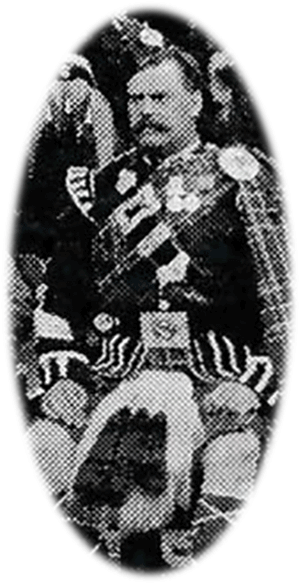
The 6th Battalion suffered heavy casualties at Loos, and later fought on the Somme. In August 1916 they were at Vimy Ridge. In April 1917 they attacked at Arras and in September back at Ypres where they assaulted the infamous Zonnebeke redoubt.
Harry Stott survived all of that but lost many friends and remained angry at the way pipers were sacrificed. Because of this he never wore a kilt again despite regularly being called on to play the pipes. The only exception was on his wedding day.
He and and his wife Belle, whom he had met at Brotherton Castle before the war, were married on 13th July 1919 at Johnshaven Church with Harry wearing his uniform for the last time. They moved to Dunbartonshire where he worked first as a gamekeeper then as a policeman till he retired when he and his wife returned to Johnshaven.
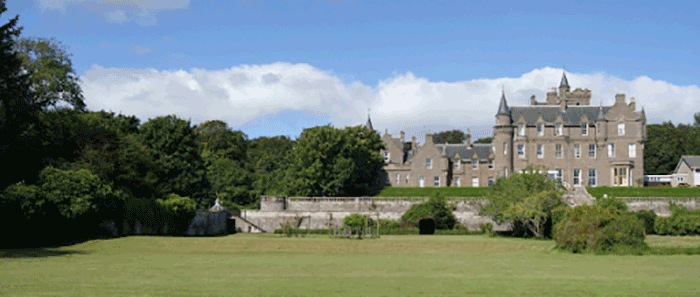
Meanwhile, in the early hours of the 2nd September 1949, Lathallan School, which was then situated near Largoward in Fife, had suffered a devastating fire. Landowner Charles Alexander who had recently bought the Brotherton Estate offered the castle to the school initially to rent but later sold it to the Board of Governors.
Several years later, on Remembrance Sunday, the then headmaster heard Harry play the pipes at the local war memorial. On talking with him the idea of forming a pipe band at the school arose.
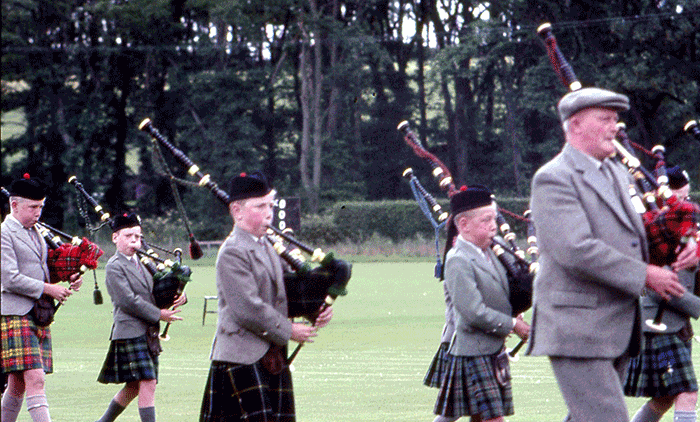
So it was that every Thursday for the rest of his life Harry went to the school and taught the pupils who wanted to be in the band. They played at many events always with Harry in attendance. He never asked for, or received, any payment for his services.
After the war he had received a set of pipes which Robert McKenzie’s wife donated to him. Myles now has that set of pipes.
They are of particular interest. On first glance they seem like a well-made set of early Peter Hendersons, ebony with ivory mounts and nickel silver ferrules. There is a degree of ‘bloom’ on the combing which is the result of them being tucked away for many years.
Judging by the decoration of the wood and the ivory mounts, they might have been manufactured in the late 1800s. Apart from their value as an antique set of Hendersons, which most enthusiasts would give their eye teeth for, they seem pretty basic.
It is only when you pay attention to the commemorative plaque mounted on the bass stock that the history of this set of pipes fans into flame. The plaque reads:
‘Presented in memory of Pipe Major R McKenzie, NCOs and Men of K.O Scottish Borderers who fell at the Battle of Loos 25th of September 1915.‘
It seems fitting that P/M MacKenzie’s pipes were awarded to the man who selflessly stepped up and took his place on the battlefield. Whether or not these are the same pipes he played on that dreadful day we cannot say, but perhaps there is someone out there who can throw some more light on this fascinating account.
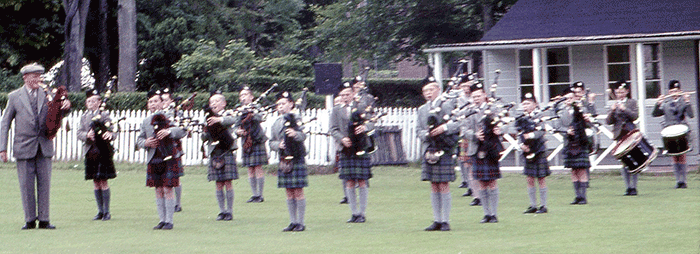
Hary died on 10th December 1972 at the Royal Infirmary in Aberdeen predeceasing his wife by two years. His legacy lives on in the many awards won by Lathallan School Pipe Band and this is a fitting memorial to a brave man.
History presents the case of Piper Daniel Laidlaw, ‘The Piper of Loos’, who acted as did Pipe Major MacKenzie and Piper Stott. Piper Laidlaw was awarded the Victoria Cross for his bravery, Pipe Major MacKenzie was believd to have been recommended for the same honour but it was not granted posthumously until 1921.
Piper Stott’s actions, like so many of the men of that time, went unnoticed in official terms, but the fact that these pipes have become a family heirloom means that someone somewhere knew what he had done and had seen fit to make sure this instrument went to the man who deserved to have them.
Lathallan School recognises this act of gallantry by one of the pillars of its establishment and will preserve the memory of Piper Harry Stott within its annals and records.











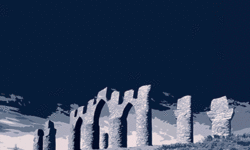
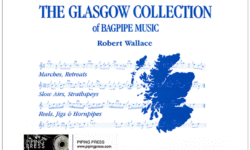
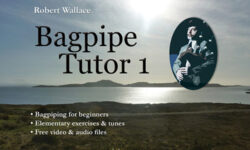





What a story of consummate courage.
I had the privilege of being taught piping by Harry Stott at Lathallan School from 1968-1972. From a school of 110 pupils aged 8-13, in 1972 we had a pipe band of over 20.
The annual outing outside school was to the U.S. base at Edzell where he played with us with a tweed suit rather than a kilt.
During the power cuts of the early ’70s he came up to the school.on his bicycle and taught us by candlelight. Logan’s tutor was the book we used and he was particular on fingering. We had school piping and drumming competitions. A butterscotch sweet was the reward for good playing. He never mentioned his exploits during WW1 which we were unaware of.
We are planning on a 50th reunion of our band of 1972 which I think should be in honour of Harry Stott (we always called him Pipe Major Stott).
Dear Chris
Thank you so much for your comments. It’s really good to hear from a pupil of this fine man and to hear how caring he was about his piping and the boys he taught.
This all came about as we were preparing to celebrate in 2024 the 60th Anniversary of the Bands foundation in 1964. This is discerned from the old year books which only begin to speak of a Band (That is pipes and drums) at this time. Mr Stott had been present for a few years beforehand as a tutor but it was only when Jock Clarke arrived that an actual Band was formed (This is to our knowledge at this point perhaps you and your fellow Band members can shed more light on this).
Perhaps when we do celebrate this milestone you might be able to join us and “blaw a tune”
Thanks again for your interest
Best wishes
John
Dear John,
It would be great to join with the school band. Alastair Shepherd, one of the drummers, and I are trying to bring together as many of the 1972 band as we can for a reunion so 2024 is a target!
The tunes we played were:
Barren Rocks, Teribus & Corriechoillie;
My Home & Morag of Dunvegan;
Captain Norman Orr Ewing;
Greenhills, When the Battle’s O’er;
Battle of the Somme;
Scotland the Brave & The March of the Cameron Men (Raymond Burton’s request).
I have heard that there is a tune “The Lathaĺlan School Pipe Band”, which I suppose Harry Stott composed, but I don’t remember playing it. Have you heard of it?
Best wishes,
Chris
Hi Chris
I have heard of the tune but never played it. I think it is recorded in one of the year books but I think it was composed by a later instructor whose name escapes me at the minute. That will be a target for me for 2024 as well.
Thanks
John
Robert MacKenzie was my great grandfather on my mum’s side.
Hi Mac
Thanks for your comments on our story. I read your message with interest and took it back to the source from where this information had come. As it was related to me anecdotally and taken, and given, I’m sure, in good faith, the author of the information felt that this was the account they had received from the family and possibly from Mr Stott himself. My own research shows that the VC was not given posthumously until 1921 therefore P/M McKenzie would have been deemed as you put it ‘worthy of a VC’ it wasn’t practise at that time to deliver it as such.
Such insights serve to improve the data available for other regarding the story and make it truly more accurate so a big thank you for this point. I have passed it to the source who I am sure will amend the oral tradition of its telling and I will update our school record to reflect this fact. Thanks for your insight, ‘Every day is a school day.’ The story has been corrected.
Best wishes, John
Hi,
I do not wish to belittle PM Robert Mackenzie in any way whatsoever – however in the interests of accuracy for future readers – could the claim that this obviously incredibly brave piper was awarded the Victoria Cross be quickly double checked? My own amateur detective work has suggested he was not. It appears that his actions were declared “worthy of the VC” following his death but that this award was not made. Piper Daniel Laidlaw was awarded the VC. My sincere apologies for wasting your time if I am incorrect. Should I be found to be correct and a comment/or edit to the article is deemed appropriate, I would rather not be identified/credited or have the correction highlighted.
Many thanks for your time.
Hello John,
Firstly I must apologise unreservedly for the error of my misspelling of P/M Robert McKenzie’s name in my initial reply. Secondly I must further apologise if any aspect of my reply is in any way interpreted as being disrespectful of anyone in anyway. I tried diligently to avoid that being the case. I am aware that it is an incredibly difficult subject in which to engage in. Thank you for your detailed reply.
Intrigued by the content of your response, I delved in again to find out a little bit more about the ‘posthumous’ aspect of the awarding of a VC. In summary; It appears that notices in the London Gazette were indeed published with the official indication that a VC would have been awarded had the individual not succumbed, until this order was rescinded as you detailed. Therefore I’m relieved that my initial point has been found to be basically unworthy of mention and that PM Robert McKenzie’s actions were indeed officially recognised as being of such selfless bravery as to warrant the award of a VC. Although his name does not appear on the official lists of recipients, the history, extent of his actions and worthiness of such an award are recorded, and hopefully to some extent, explained here. Hopefully, as you mention, our exchange might assist others, as it has me, who are perhaps seeking a little more knowledge in these historical, and most importantly -personal/family matters.
With sincere thanks,
Macs
Hello Macs
No apology is necessary. Your insights are positive and helpful in keeping a true record of the actual outcomes of the events unfolded in the story. No offence is taken where the information actually assists the account.
We are all too aware that oral traditions are not without their share of “lily gilding”, just look at some of our old tunes and the legends behind them.
In your response you mention the Gazette, could I prevail on you to perhaps send me a source for this information as again, it opens up a new string of enquiry for me.
Best wishes and thanks for your help
John
Wonderful bios by John Nevans! Thank you.